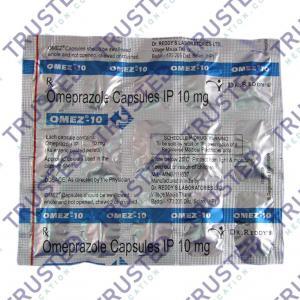
Lupus can be difficult to diagnose because symptoms often imitate those of other ailments. The most distinctive sign of this disease is a facial rash that resembles the wings of a butterfly unfolding across both cheeks. Some people are born with a tendency toward developing it, which may be triggered by infections, certain drugs, or even sunlight.
What is Lupus?
Lupus is a disease of the immune system. Your immune system protects your body from infection. But when you have this disease, your immune system attacks your tissues. This leads to tissue damage and illness.
The main types of lupus are:
- Systemic lupus erythematosus (SLE): The most common form of the disease, where inflammation from a faulty immune system inflames several organs or organ systems.
- Lupus nephritis: This is inflammation of the kidneys due to SLE.
- Cutaneous lupus: Your faulty immune response causes skin rashes or lesions.
- Drug-induced lupus: Medication causes this form of the disease. Symptoms may stop when the medication stops.
- Neonatal lupus: This type happens to infants whose mothers have SLE.
What Are Its Symptoms?

No two cases of this disease are exactly alike. Symptoms may come on suddenly or develop slowly, may be mild or severe, and may be temporary or permanent. Most people with this have mild disease characterized by episodes when symptoms get worse for a while, then improve or even disappear completely for a time.
The symptoms of this disease that you experience will depend on which body systems are affected by the disease. The most common symptoms include:
- A butterfly-shaped rash on the face that covers the cheeks and bridge of the nose or rashes elsewhere on the body
- Fingers and toes that turn white or blue when exposed to cold or during stressful periods
- Skin lesions that appear or worsen with sun exposure
- Joint pain, stiffness, and swelling
- Headaches, confusion, and memory loss
- Fatigue
- Fever
- Shortness of breath
- Chest pain
- Dry eyes
What Causes Lupus?
The immune system attacks healthy tissue in your body when you have Lupus, an autoimmune disease. It is likely caused by a combination of genetics and the environment.
People with an inherited predisposition to it may develop the disease if they are exposed to something in the environment that triggers it. In most cases, however, it has no known cause. Some potential triggers include:
- Sunlight: People with the disease may develop skin lesions or develop an internal reaction when exposed to the sun.
- Infections: Having an infection can initiate the disease or cause a relapse in some people.
- Medications: Certain blood pressure medications, anti-seizure medications, and antibiotics can trigger it. Those with drug-induced lupus usually get better when they stop taking the medication. Even after stopping the drug, symptoms may persist.
Who Is At Risk?
Factors that may increase your risk include:
- Age: Even though this affects people of all ages, its most often diagnosed between the ages of 15 and 45.
- Your sex: The disease is more common in women.
- Race: It is more common in African Americans, Hispanics, and Asian Americans.
Another factor that may increase your risk:
- Hormones
- Infections
- Medications
- Environment
- Lifestyle
- Genetics
Treatment for Lupus
The treatment primarily involves treating your inflammation to protect your organs and prevent flare-ups. The best approach to treating this disease is a plan tailored to your specific needs. It should consider the type of lupus you have, the severity of your inflammation, and the damage to your organs that has occurred.
Keep in mind that this plan may take some time to create and may need to be adjusted as your symptoms and your needs change. In addition to controlling your systems, the overall goals of your treatment plan will be:
- Lessen your inflammation.
- Prevent flares and treat them as they occur.
- Minimalize the damage to your organs.
Whatever treatment you choose, talk with your doctor about the benefits, risks, and side effects. It’s also important to have regular exams and lab tests to track your lupus and adjust your treatment as needed.
Recommended medication for Lupus:
- Hydroxychloroquine – this drug helps calm your overactive immune system. They reduce its inflammation flares and treat its symptoms.








